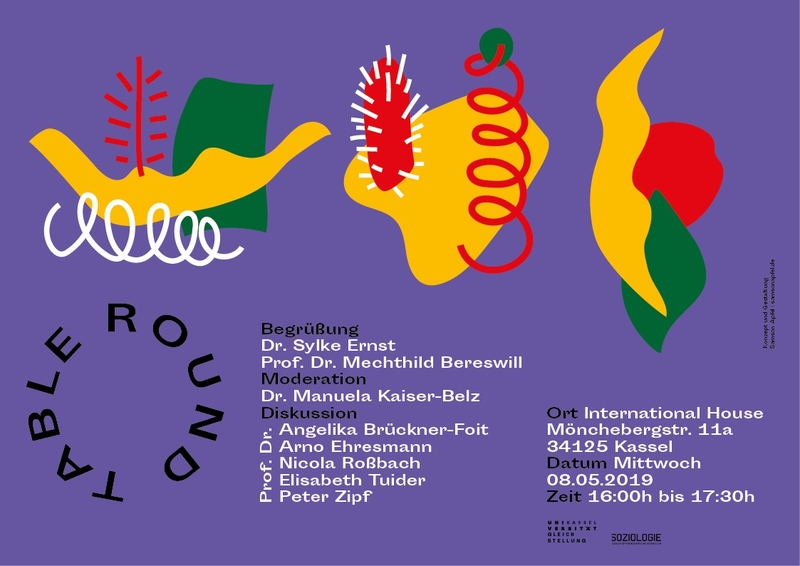This page contains automatically translated content.
Round Table "Equality Perspectives in the Science System at the University of Kassel".

They dealt with their own professional biographical experiences of discrimination and discussed equality concepts, equality work and concrete future perspectives at the University of Kassel. The panel also discussed the varying perceptions of gender equality in the various disciplinary cultures. It became apparent that some think of gender equality exclusively in terms of women, while others define gender equality in more diverse terms and expand it in the direction of diversity. The topic of "gender-equitable language" occupied a special place in the discussion. On the one hand, reference was made to language as a cognitive guide that affects behaviors in society, thus emphasizing the importance of dealing with it sensitively. On the other hand, it was argued that language can act as a cloak of invisibility and that the use of asterisks or underscores is by no means a sign of sensitivity or a guarantee of equality.
In addition, it was pointed out that this was a problem in the German language, and there was a plea for taking a cue from other countries and not making language the most important issue in gender equality issues. This discussion point in particular highlighted the added value of the experiment of a round table on gender equality perspectives. The complexity of the topic of gender equality and how important and enriching it is to discuss it outside of one's own comfort zone and the thought structures of one's own professional culture were impressively demonstrated.
With regard to the dimensions of change and future perspectives, the panel first referred to the very good work of the Equal Opportunities Office to date. In addition, it was suggested that equality should be interlinked with the promotion of young academics, so that the importance and significance for the university can be conveyed from the very beginning. It was also demanded that the university should make its own image of man more publicly accessible and, in connection with this, make a clear statement against anti-feminism. In addition to these basic demands, there were also concrete proposals, e.g., to establish 24-hour kindergartens or to increase the time budget of the equal opportunity officers at the departmental level. Overall, an "infrastructure" for equality is to be created and a meaningful catalog of tasks is to be developed. It was precisely in this part of the discussion that it became clear how important concrete, comprehensible proposals for action are to the expert round table.
While the round table offered all participants the opportunity to reflect on their own positions in constructive cooperation and also to bring up opposing positions in front of a large audience, which made the broad university public interest clear, the audience present gained exciting and diverse insights into current equality debates at Kassel University.